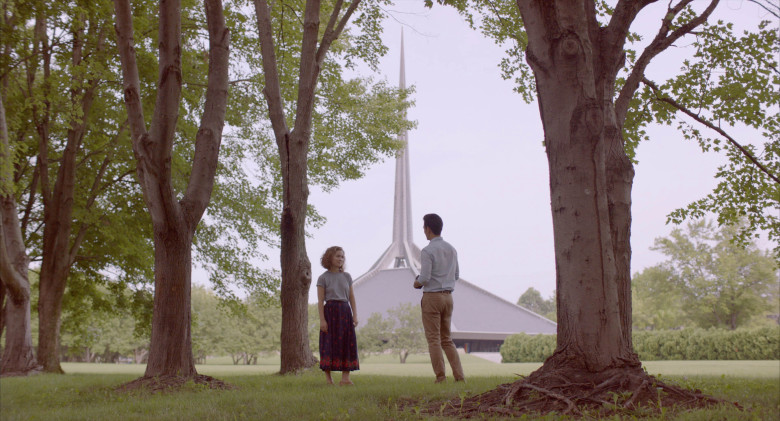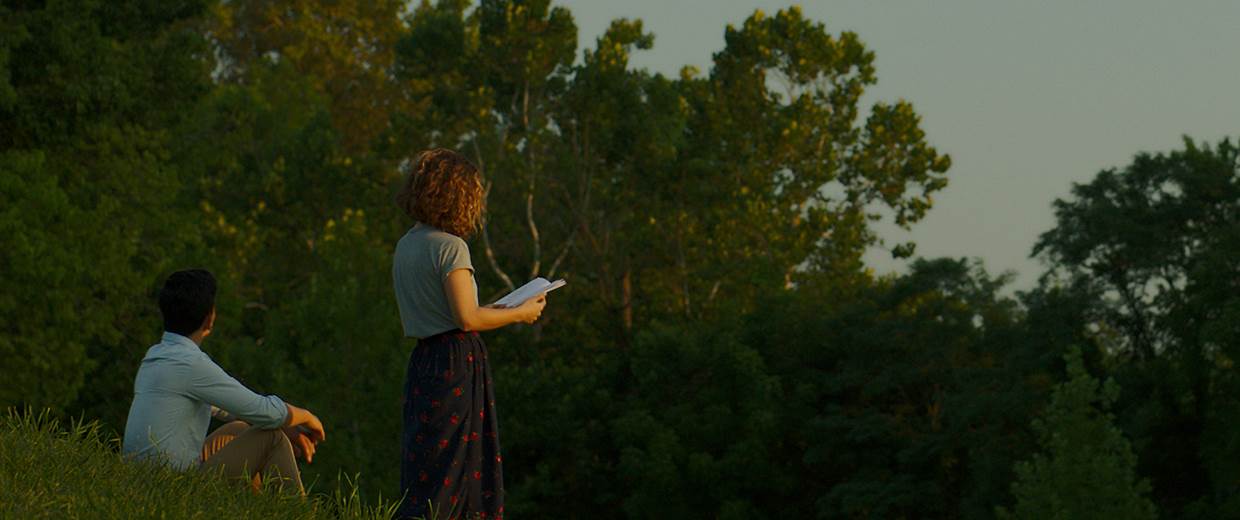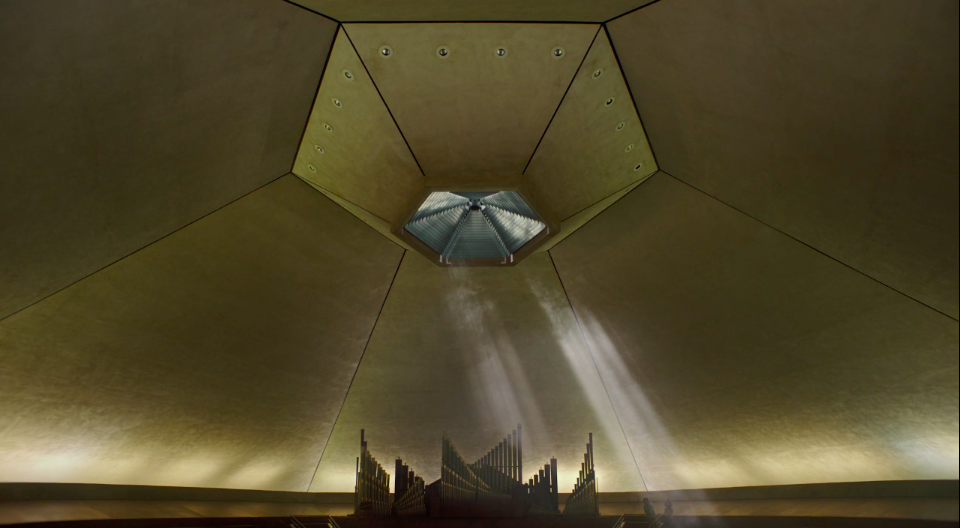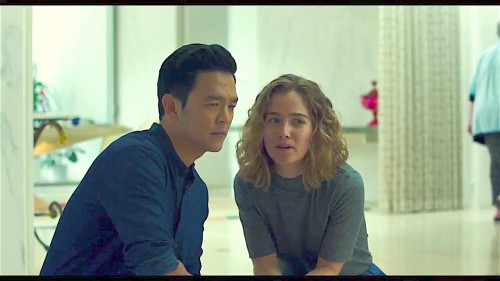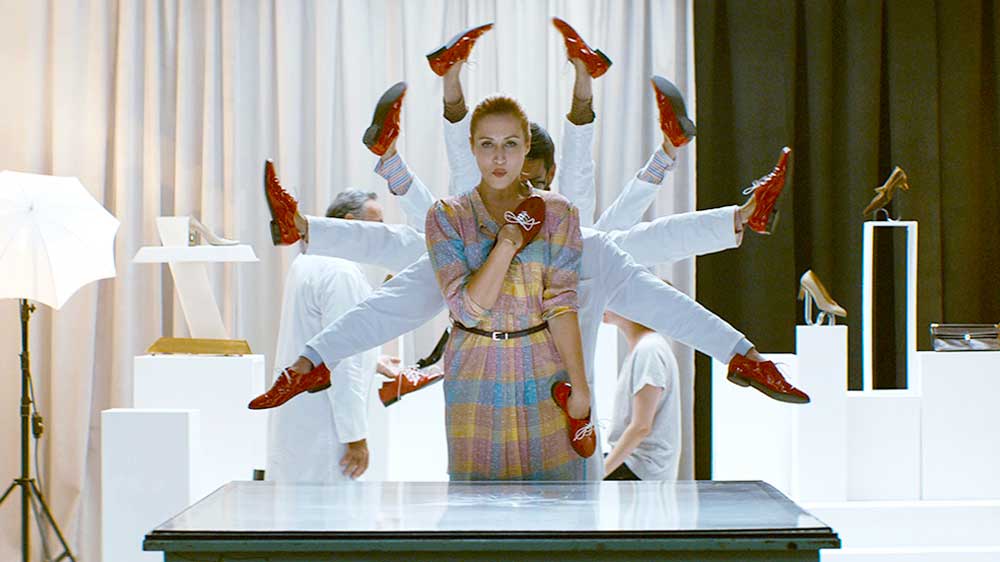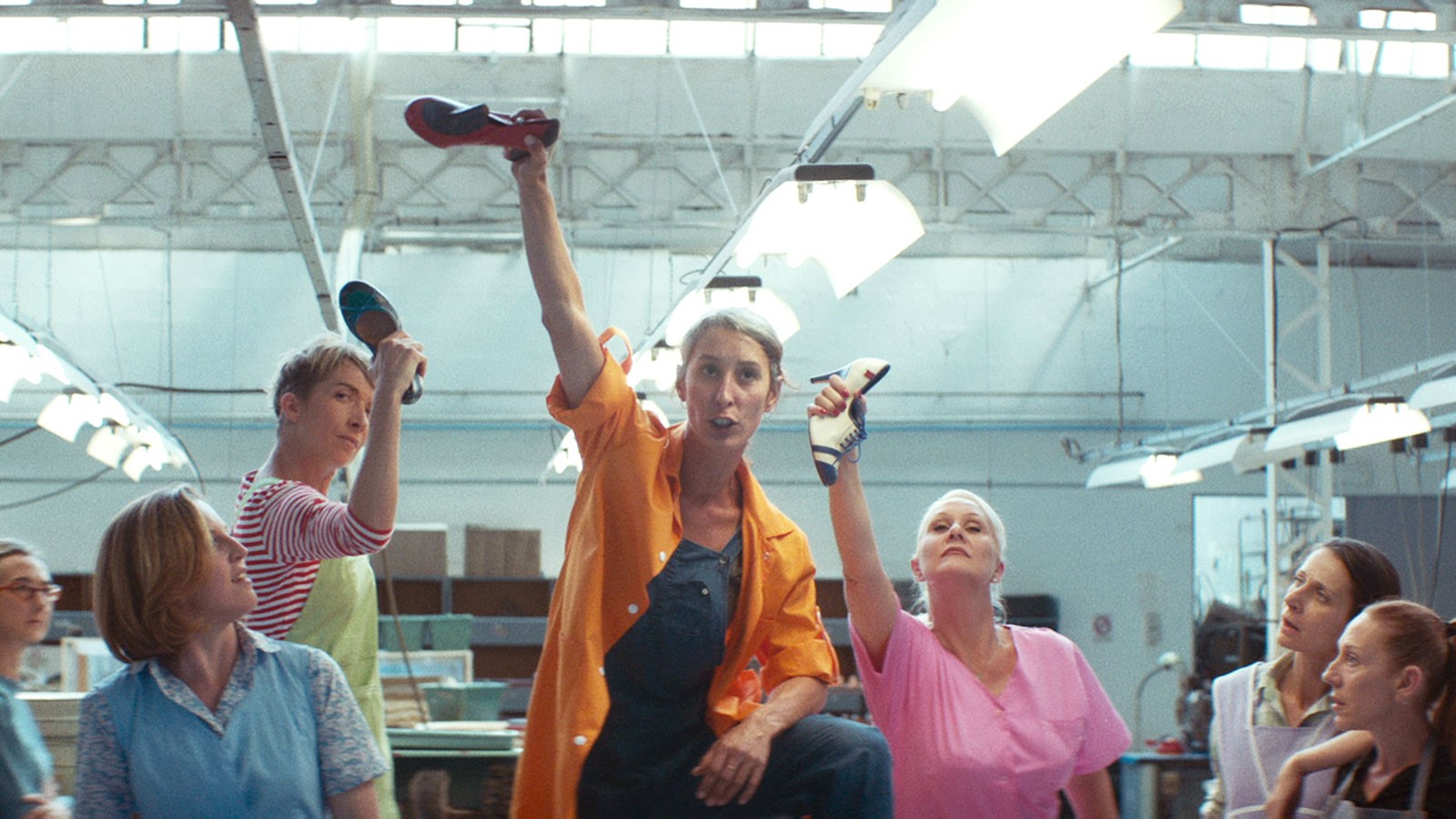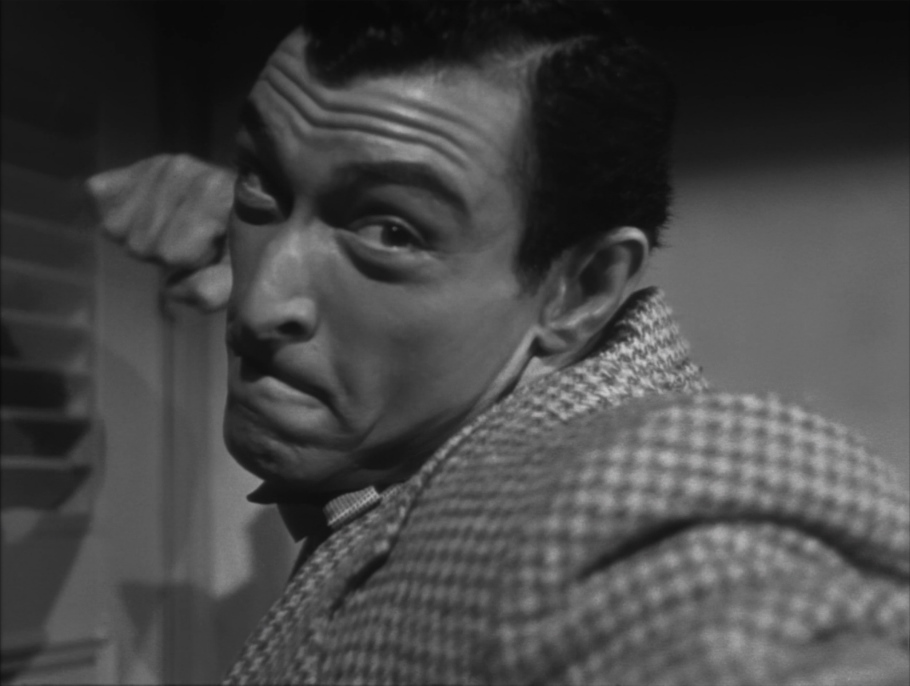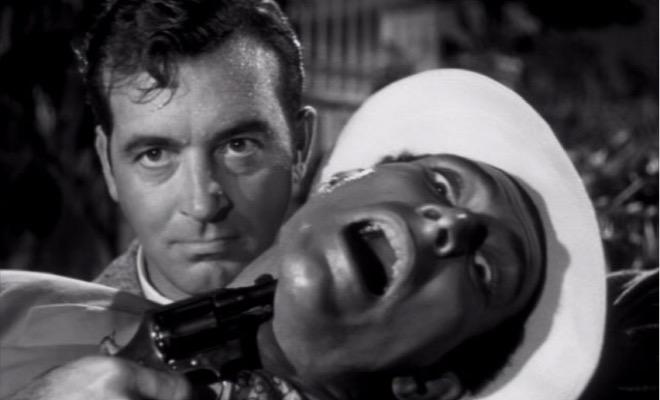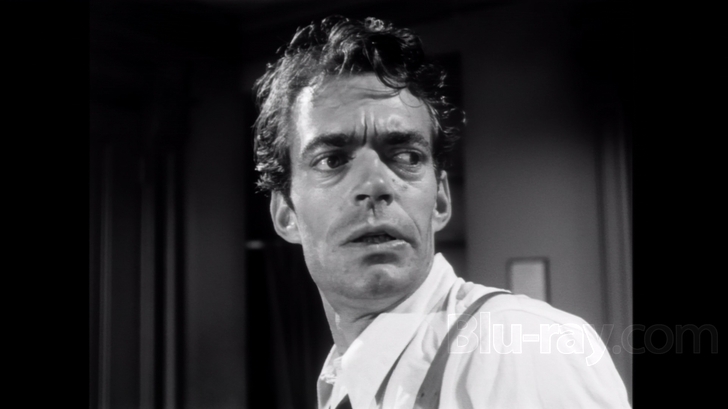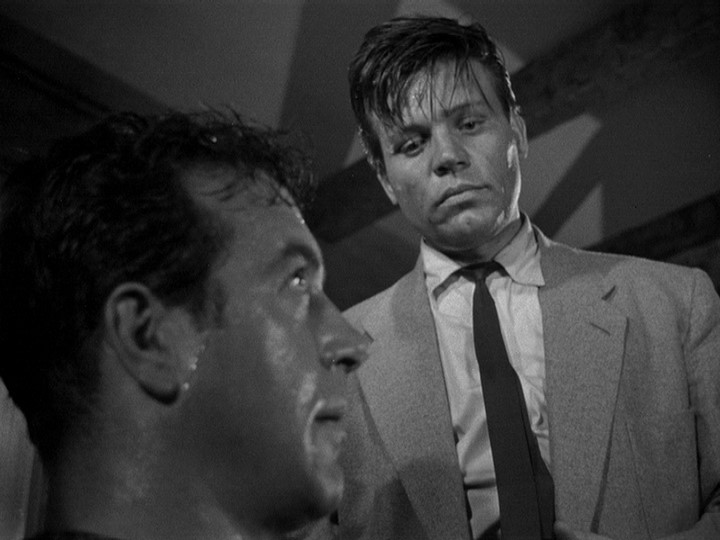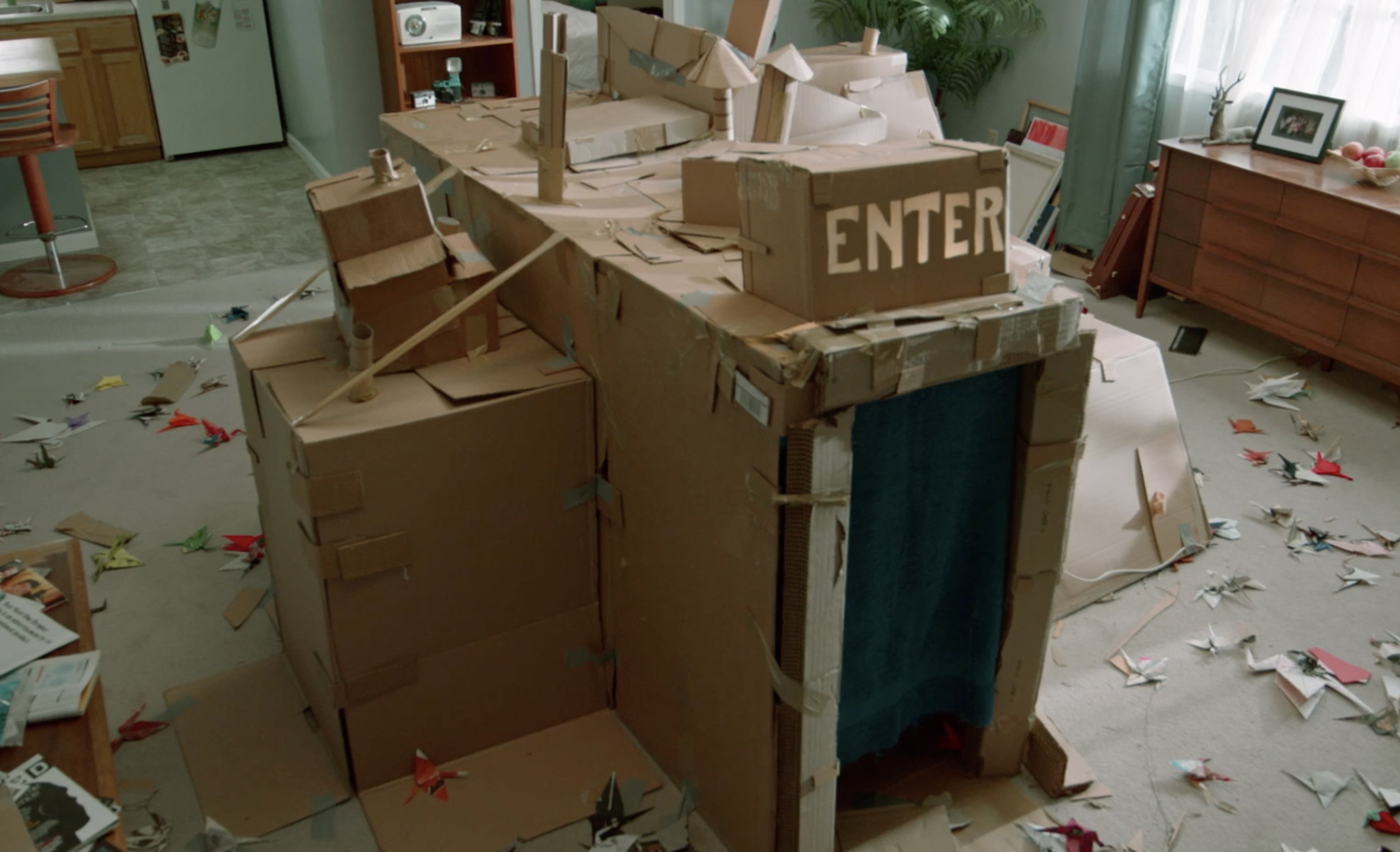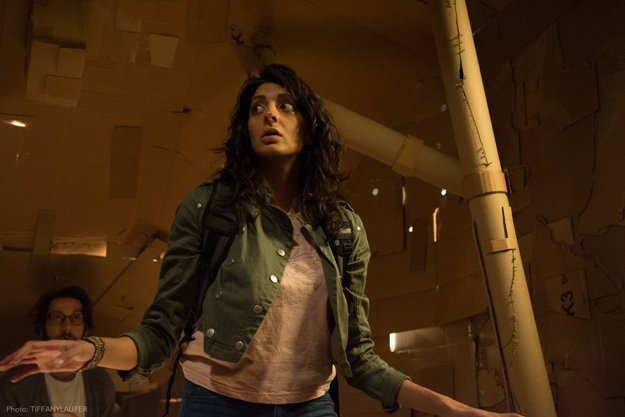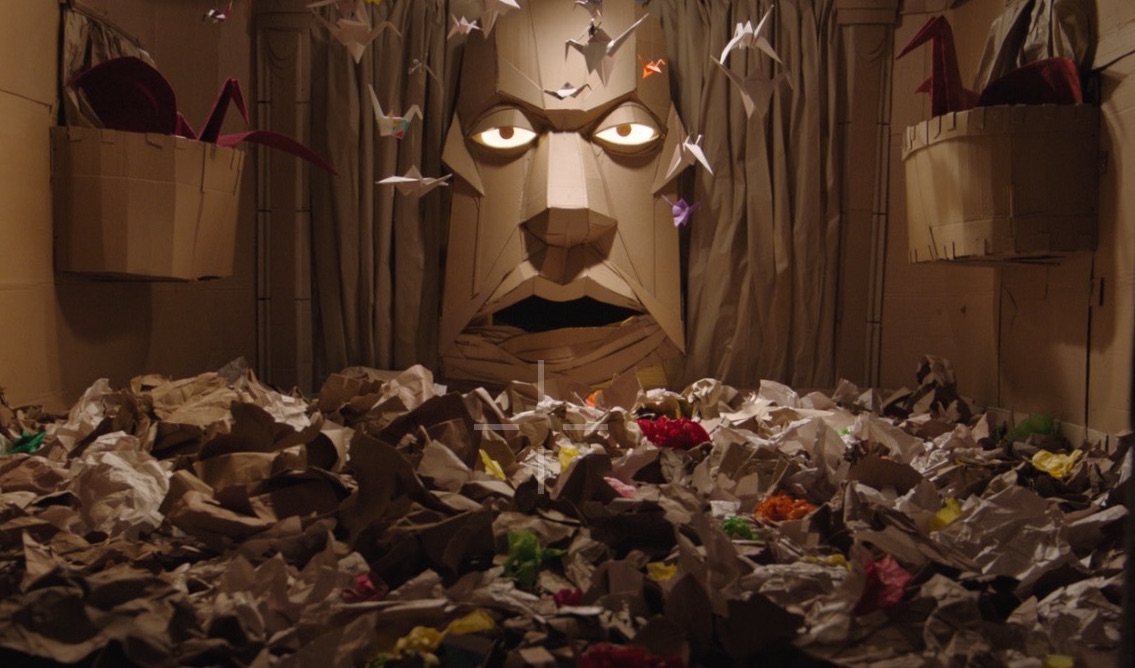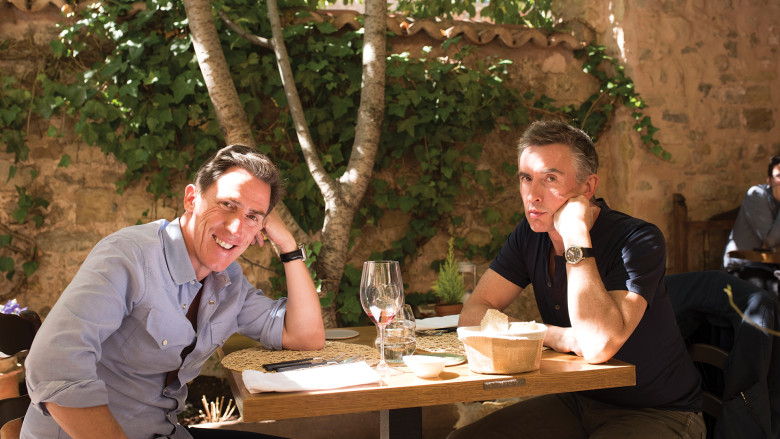 Over dinner on a terrace overlooking the gorgeous Bay of Biscay, Rob Brydon and his friend Steve Coogan are bantering. Brydon says he's going to approach writing about their trip to Spain as if they're Sancho Panza and Don Quixote: "two middle-aged men looking for adventure." Later, when they're dressed in those roles for a photo shoot, Coogan is pleased that Brydon is cast as Panza: "the supporting role, as ever."
Over dinner on a terrace overlooking the gorgeous Bay of Biscay, Rob Brydon and his friend Steve Coogan are bantering. Brydon says he's going to approach writing about their trip to Spain as if they're Sancho Panza and Don Quixote: "two middle-aged men looking for adventure." Later, when they're dressed in those roles for a photo shoot, Coogan is pleased that Brydon is cast as Panza: "the supporting role, as ever."
There we have, in a nutshell, the charm of this delightful, if familiar, installment in a series that's become one of the real pleasures of my filmgoing life. One-upping each other (when dropping a famous name, they'll often ask the other "Have you met him?"), working each other's nerves, having fun, they're the odd couple—but a couple nonetheless. There is a moment in the Cathedral of Siguenza when they linger over a tomb where a couple is laid out side-to-side for all eternity. The boys shoot each other a meaningful glance. Coogan shudders.
Thus, for the third time since 2010, we're off on a melancholy tour of wonderful restaurants and gorgeous scenery with these two smart, droll British comedians. They've toured Britain and Italy, and now it's time for a week-long road trip in Spain, again ostensibly to review restaurants, although we never see them writing. (When they do turn their attention toward the food, we get appraisals like "life-affirming butter.") It tickles me to take these trips—travel and food being two of my favorite things, and smart, droll British comedy, the kind that presupposes some literacy and knowledge of history on the part of its audience, being my favorite kind.
I'll always love the dueling impressions and accompanying ruthless criticism, though as the hits keep coming, the experience is a bit like attending a concert by one of your favorite performers, only the setlist is the same as the last show you saw. You wouldn't want to be anywhere else, but it's not quite like the first time.
Reunited with director Michael Winterbottom, the boys once again play slightly twisted versions of themselves: Brydon is the genial family man, Coogan is the frustrated, pedantic, pretentious, lonely man whose personal and professional lives aren't where he wants them to be. Like the previous two films, THE TRIP TO SPAIN is an adaptation of a six-party BBC TV series. Would I want to watch the whole thing? I could, and with pleasure. But you know what? This is a good taste.

There are wistful notes here, about aging and friendship, that the filmmakers might tease out without violating the series' allergy to sentiment. In their mid-forties when they took their first trip, they're now in their early fifties. "We're at the sweet spot in our lives," opines Coogan, rather wishfully. Brydon concurs, reflecting that Cervantes wrote Don Quixote when he was fifty. For his part, Coogan advises he intends to chronicle "his" odyssey through Spain somewhat on the model of Laurie Lee—the poet, who, in his fifties, wrote As I Walked Out One Midsummer Morning, about his time in Spain as a young man. (Coogan carries the book around with him, and may even actually be seen cracking it.)
They hit a wonderful restaurant in each town. Txoko, in Getaria. Etxebarri, near Bilboa. La Posada del Laurel, in Prejano. Nola, in Siguenza. The Parador of Almagro. El Refectorium, in Malaga. They visit the beautiful cliffside town of Cuenca, and sleep in paradors in historic castles and monasteries. As they make their way through Andalusia, Coogan visits Granada's Alhambra, taking me back to my own time there. Yet he's preoccupied by the unsettling news that his twenty-year-old son's girlfriend is pregnant.
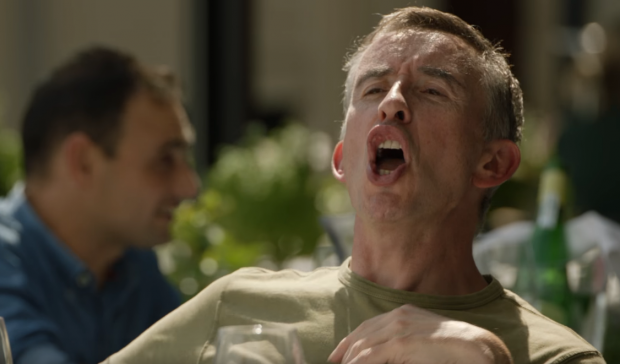
Coogan never goes long without mentioning how PHILOMENA, in "real life" the 2013 Oscar contender he co-wrote and starred in with Judie Dench, altered the course of his life and career. In reality, he's flailing. In a dream, he hears the name "Steve" being called out at the Oscar ceremony and begins to rise, only to find out the winner is Steve McQueen. This kind of self-parody had got to hit close to home, and I'll always admire Coogan for making himself, and the vicissitudes of his career, the ongoing butt of the joke. His exasperated calls to his manager and agent, and his dead-end relationship with his (married) girlfriend (Margo Stilley of 9 SONGS), carry a real tang of desperation.
But what you came for are the dueling impressions, at which both men are preternaturally gifted. (Coogan's recent performance in THE DINNER seemed a bit like an impression of an American.)
I love 'em. There's a ritual to how they're unrolled at this point. Mick Jagger, David Bowie, Sean Connery, John Hurt, Ian McKellan. Robert De Niro. Brando doing Monty Python's Spanish Inquisition bit (leading to a brilliant sequence in which Coogan dreams he's being questioned by Brydon-as-Brando-as-Torquemada). The Stones doing Shakespeare. Hopkins-as-Picasso: absolutely brilliant. Coogan does a gag where he moves his lips while emitting an obnoxious test-pattern noise, and Brydon counters with his signature "small man in a box" routine. (A "brilliant" bit, grants Coogan, but also perhaps "the apotheosis of your career.")
Finally, with a gleam in Brydon's eye, we get the dueling Michael Caines. It never gets old, that. When Brydon does Jagger at a party, doing Brydon's Caine back to him, it's vertiginous.
The women from previous episodes join them: Marta Barrio as a photojournalist, and Claire Keelan as Coogan's assistant, Emma (the name of his assistant in "real life," I note). To impress and amuse the women over dinner, Brydon and Coogan compete with their Roger Moore impressions, Brydon conflating the surname with the word "Moor" in order to deflate Coogan's mansplaining disquisition on the history of Andalusia. Even as Brydon drives it into the ground, the women are a generous audience, laughing indulgently.
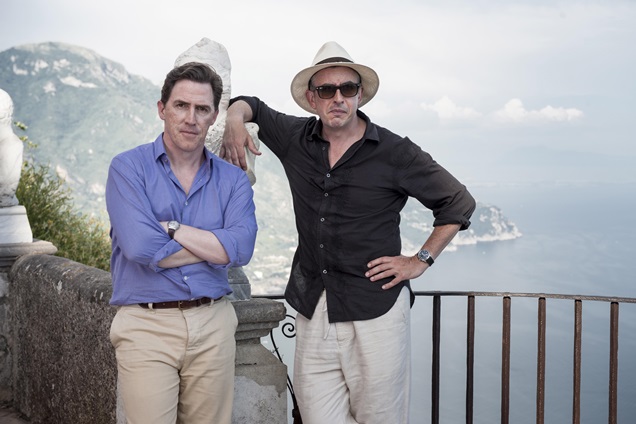
James Clarke's roseate cinematography fills the frame with stunning views of the country. To complement his images, Winterbottom recycles Michael Nyman's poignant music from his 1999 film WONDERLAND. I suppose he decided Nyman's score was so beautiful he'd just use it again. It works.
Despite my caveats, then, I'd still advise skipping whatever this week's soul-withering blockbuster might be in favor of knocking about with the boys, rolling down the road and spontaneously harmonizing to "Windmills of My Mind." Rob notes that tune was famously sung by Noel Harrison, who also sang "The Rain in Spain"—and in the previous scene, we'd just seen them caught in a Spanish downpour. Wheels within wheels, as Rob says. And of course, "windmills" ties into our middle-aged men of La Mancha, tilting away against the beat of the clock.
This is wonderful stuff, really, and I laughed hard. Almost by sleight of hand, they've got something rather sublime on their hands with this series. I think of the moment when they say their goodbyes as a mist hangs over Malaga, and the tabletop glows in the early morning sun. They do their dueling Bogarts, one last time. Then Coogan is left alone, again. These guys are just too much—for better and for worse. I always feel like I've had enough by the end of the week, and then I look forward to the next journey.
Rating: ***
Key to ratings:
***** (essential viewing)
**** (excellent)
*** (worth a look)
** (forgettable)
* (rubbish!!)
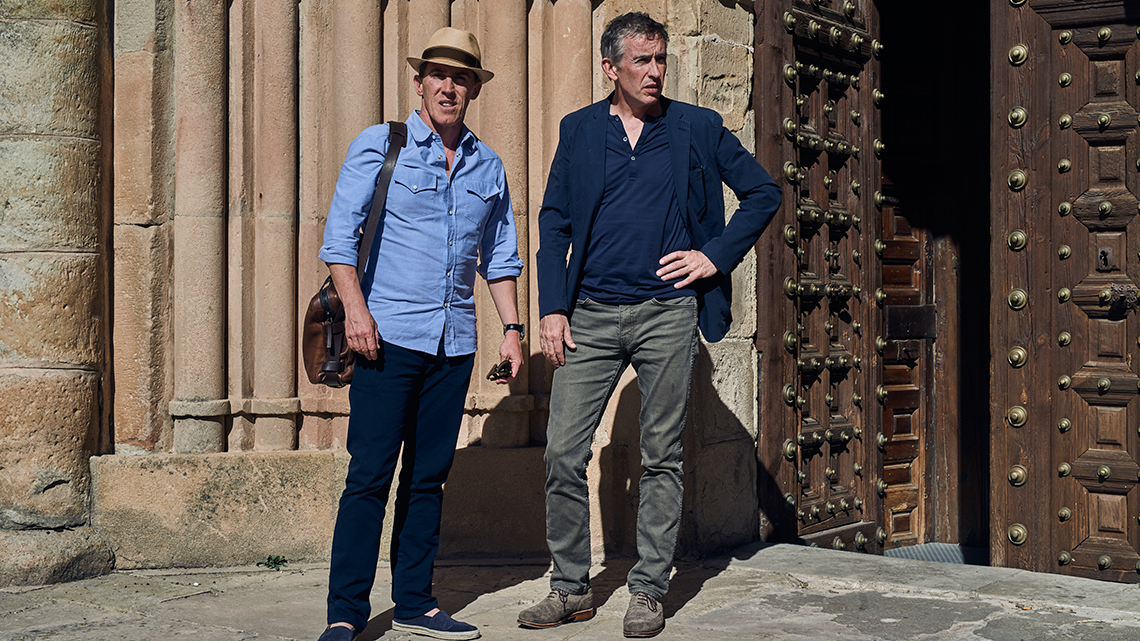
Michael Winterbottom's THE TRIP TO SPAIN (2017, 108 min, DCP Digital) plays Landmark's Century Centre Cinema starting Friday, August 18. Check venue website for showtimes.
 Scott Pfeiffer
Scott Pfeiffer  Friday, September 8, 2017 at 02:05PM
Friday, September 8, 2017 at 02:05PM 